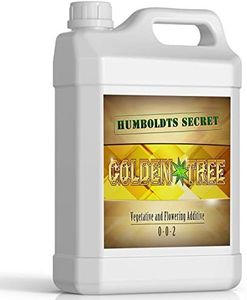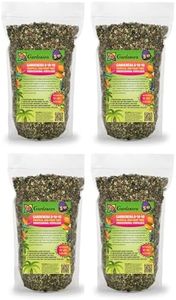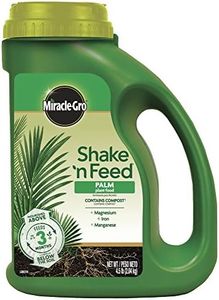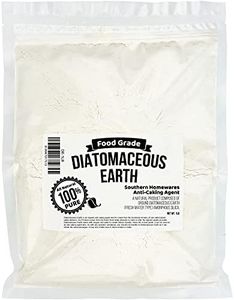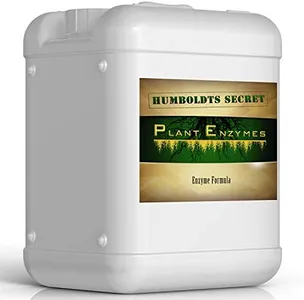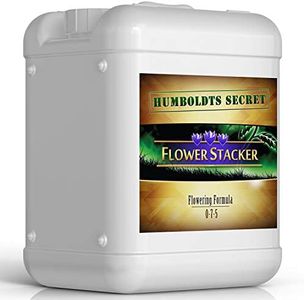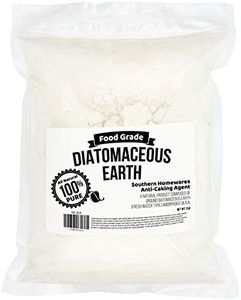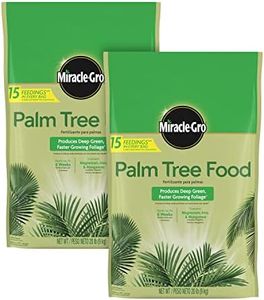10 Best Palm Tree Fertilizers 2025 in the United States
Our technology thoroughly searches through the online shopping world, reviewing hundreds of sites. We then process and analyze this information, updating in real-time to bring you the latest top-rated products. This way, you always get the best and most current options available.

Our Top Picks
Winner
Gardenwise 8-4-8 Professional Palm Tree Fertilizer Plant Food; for Indoor Potted Plants and Outdoor Landscape Palm Trees; Quick-Release Nitrogen Fertilizer and Continuous Feeding (20 QUARTS)
Most important from
1163 reviews
The Gardenwise 8-4-8 Professional Palm Tree Fertilizer Plant Food offers a balanced NPK ratio of 8-4-8, making it suitable for both indoor potted palms and outdoor landscape palm trees. One of its significant strengths is its quick-release nitrogen formula, which provides an immediate boost to your palm trees, promoting rapid growth. This fertilizer also offers continuous feeding, requiring application only three times a year - at the end of winter, spring, and the start of fall, which is convenient for those who prefer low-maintenance gardening.
Additionally, it comes in a granular form, making it easy to spread around the base of the trees. Home gardeners and professionals alike can benefit from this product, as it serves both small-scale indoor plants and large outdoor palms. However, there are some considerations to keep in mind. The quick-release nature means that there's a risk of over-fertilization if not applied carefully.
Moreover, while it provides immediate nutrition, it might not sustain long-term soil health as effectively as some slow-release or organic options. For those looking for an organic solution, this synthetic fertilizer might not be the preferred choice. This product is ideal for those seeking a fast-acting, straightforward fertilizing option for their palm trees, but users should be cautious about the application amounts to avoid potential nutrient burn.
Most important from
1163 reviews
Premium 8-10-10 Fertilizer for Palm Trees, Citrus Plants and Other Tropical Plants by Gardenera - Boost Biomass and Enhance Leaf Color - 20 Quart
Most important from
474 reviews
Gardenera's Premium 8-10-10 Fertilizer is specifically tailored for palm trees, citrus plants, and other tropical flora, providing an 8-10-10 NPK ratio that is ideal for these plants' nutritional requirements. The formula is enhanced with micronutrients, including 3% iron, to promote strong growth, vibrant foliage, and robust root systems. This makes it particularly beneficial for boosting biomass and enhancing the health and appearance of your garden.
The slow-release nitrogen offers up to three months of continuous nourishment, making maintenance easier and ensuring consistent growth across seasons. This feature helps prevent over-fertilizing and reduces the need for frequent applications, which can be a significant advantage for busy gardeners. Additionally, the granules are designed for use with a rotary spreader, simplifying the application process and ensuring even distribution of nutrients.
The fertilizer is versatile for various tropical plants and suitable for year-round use, though it might not be as effective for non-tropical plants or different soil conditions outside of Florida's diverse landscapes. Furthermore, the packaging details indicate a modest liquid volume and lightweight, which implies a need for careful handling and storage. This fertilizer is a strong contender for gardeners focusing on tropical plants and seeking a slow-release, nutrient-rich solution.
Most important from
474 reviews
Jobe’s Organics Granular Fertilizer, Organic Fertilizer for Palm Trees and Plants, 4 lbs Bag
Most important from
7306 reviews
Jobe’s Organics Granular Fertilizer is a solid choice for anyone looking to nourish their palm trees and plants with an organic option. With a 4-2-4 NPK ratio, it offers a balanced mix of nitrogen, phosphorus, and potassium, which are essential for promoting healthy foliage and root development.
The product is free from synthetic chemicals and is OMRI listed, making it suitable for organic gardening. Since it comes in granular form, application is simple and needs to be done every 2-3 months, making it relatively low-maintenance. The 4-pound bag is designed to minimize wasteful runoff and mess, which is a plus for those concerned about cleanliness and environmental impact.
One of its main strengths is avoiding the risk of over-fertilization, as it's easily measured for precise application. However, being a slow-release fertilizer, it might not provide the immediate boost that quick-release fertilizers offer, and the user must be patient to see the full benefits. Additionally, while it avoids smells and hazards, it may not be as potent as synthetic alternatives for those seeking rapid growth results. This product is particularly beneficial for gardeners who prioritize organic products and are willing to maintain a regular fertilizing schedule for the best results.
